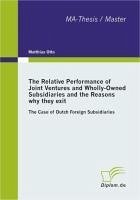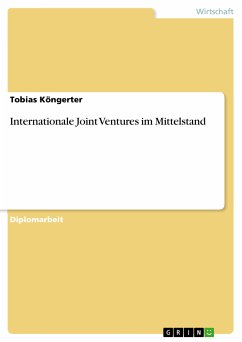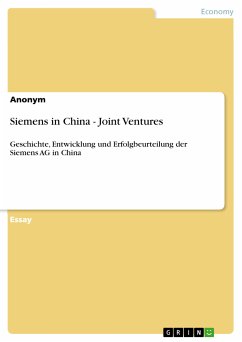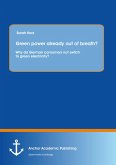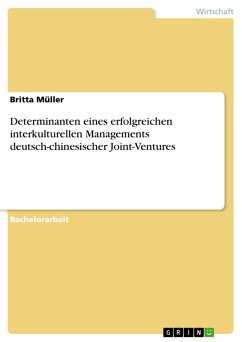Using data on more than 200 foreign entries made by Dutch MNEs between 1995 and 2003, this study examines the relative performance of jointly-owned and wholly-owned affiliates and sheds light on the underlying reasons why these two types of affiliates exit. By employing performance measures such as average longevity and exit rate, and by differentiating between exits through liquidations and those through sell-offs, I find that there are no essential performance differences between WOSs and JVs, which is in line with the results of prior scholarship (e.g. Dang, 1977; Chowdhury, 1992; Chan, 1995; Mata & Portugal, 2000; Pangarkar & Lim; 2003; Delios & Beamish, 2004). Furthermore, the findings reveal that both WOSs and JVs mainly exit voluntarily. The most prevalent reason for WOS exit is strategic restructuring, whereas the most common reason for JV exit is fierce competition in the host market. Finally, I discover supporting evidence for the proposition that MNE parents are more likely to buy out local partners from JVs over which they have majority ownership than from JVs over which they have minority ownership.
Dieser Download kann aus rechtlichen Gründen nur mit Rechnungsadresse in A, B, BG, CY, CZ, D, DK, EW, E, FIN, F, GR, HR, H, IRL, I, LT, L, LR, M, NL, PL, P, R, S, SLO, SK ausgeliefert werden.

